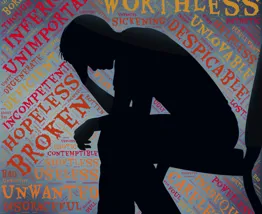Enrol in an online course today for flexible, self-paced learning—no fixed schedule required. Plus, enjoy lifetime access to course materials for convenient revisiting.
Apps to Help Clients Cope Over Christmas
A European friend of mine said to me the other day that the English attitude to Christmas is very unhealthy. How right she is! The problem with Christmas, in our culture, is that it is surrounded by unrealistic expectation. The pressure starts in October, when those first Christmas lights, decorations and adverts appear. We all start to dread the question, “What are you doing for Christmas?” What is a delight for some can be complete hell for others.
As therapists, we know this. We know about the stress, the anxiety, the violence, the drinking, the loneliness, the difficult memories that can surface. (One of my supervisees recently described Christmas as a time for narcissistic parents: “Look what I’ve got you this year!”) Most of this occurs behind closed doors, so everyone thinks that everyone else is having a great time. But there are many for whom Christmas is an emotional minefield.
So how can we help our clients to prepare for the most dysfunctional 10 days in the UK calendar? One way is by sharing some useful online resources. Many face-to-face therapists may not be used to using apps as a complement to their work. But with digital mental health care becoming increasingly mainstream, all therapists now have many more tools at their disposal to help the client.
There are so many apps on the market that it’s hard to know where to start – so one really good resource is Orcha, which evaluates health apps for the NHS Choices Library and also independently. You can be sure to get an objective view of the role and value of an app to help support someone’s mental health care.
Here are three of the highest scoring free apps to support wellbeing:
Sleepio
Ongoing lack of sleep is one of the biggest contributors to poor mental health, limiting our ability to function well physically or mentally. You might wish to look at Sleepio as one support for your clients who struggle with sleep. It has been developed in the UK by CBT practitioners, and helps users develop a personalised sleep program. The app works on four areas: your thoughts and worries about sleep, your nighttime sleep schedule, your lifestyle, and your bedroom.
Panic Attack
Panic attacks are debilitating and can reduce a confident person to a wreck within minutes. An app is not going to solve the issue but it might give some short-term help. Panic Attack is a UK-developed app that can help with breathing exercises, dietary changes and physical exercise.
Best-You
One of the big issues at Christmas is the emphasis on alcohol. This is a terrible time for a recovering alcoholic, and for families of those whose personalities change with drug or alcohol intake. This monitoring app can help someone who wants to consider their relationship with alcohol.
Pip Weitz is the Training Director for The Academy for Online Counselling & Psychotherapy

















